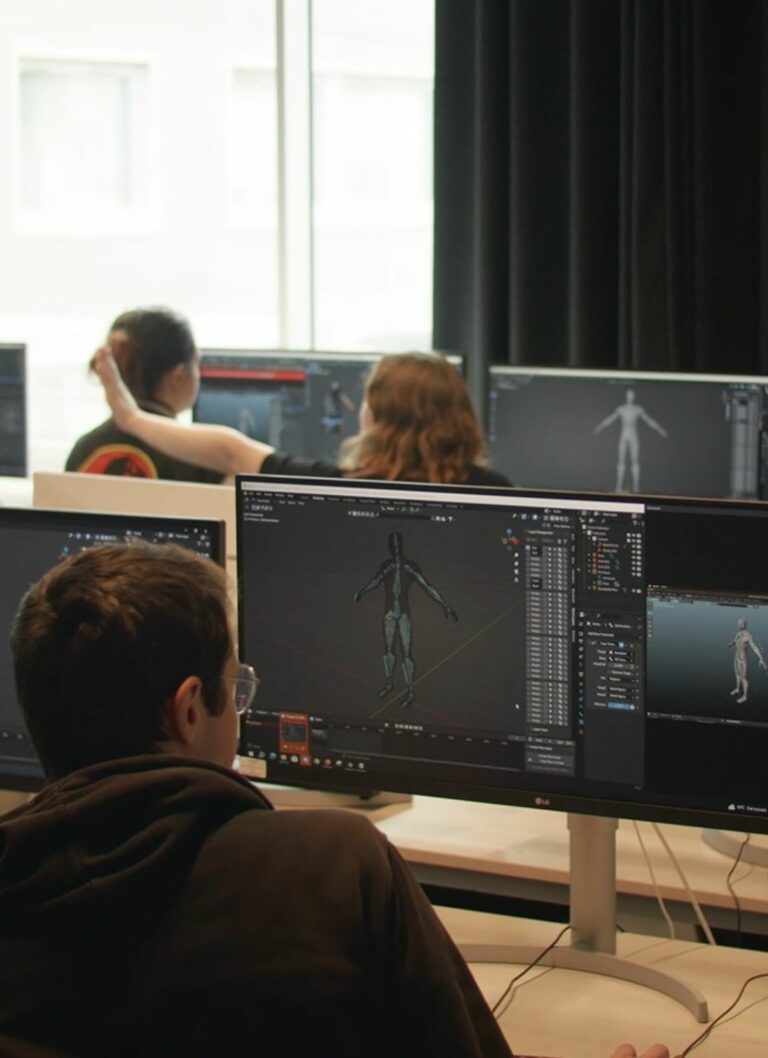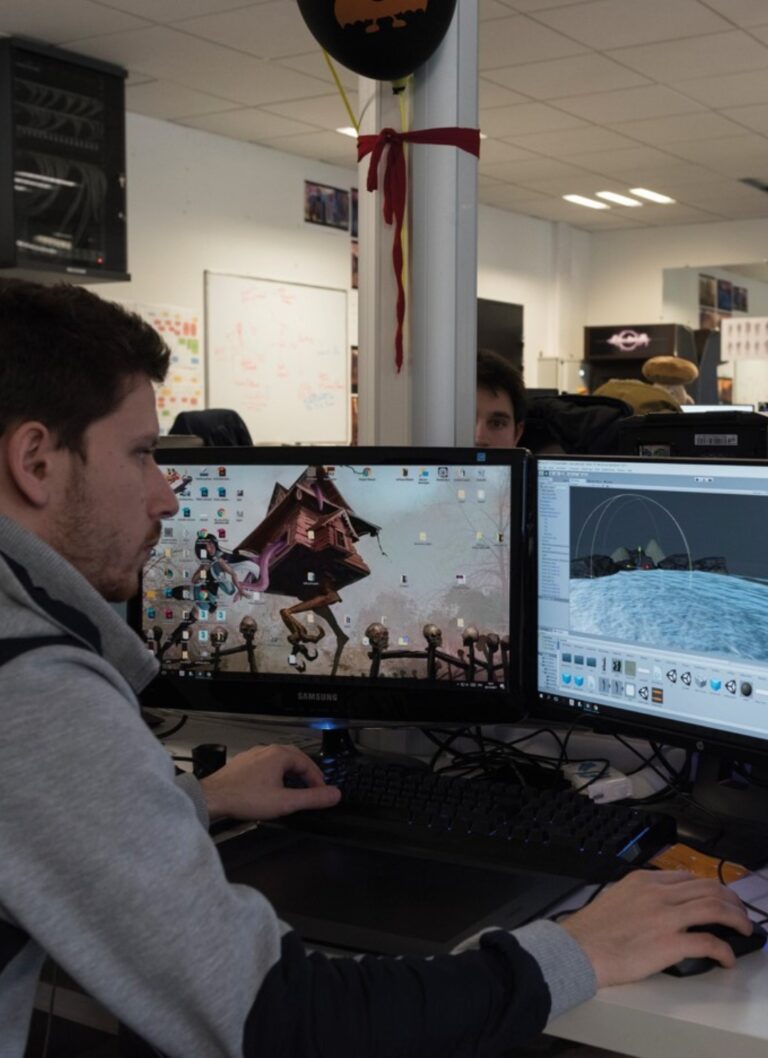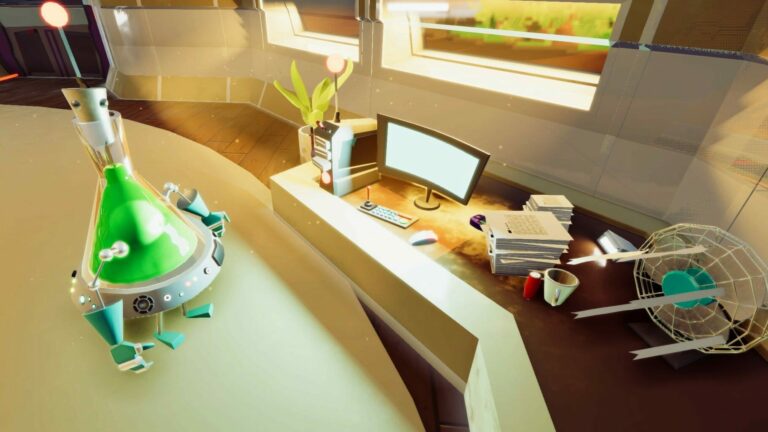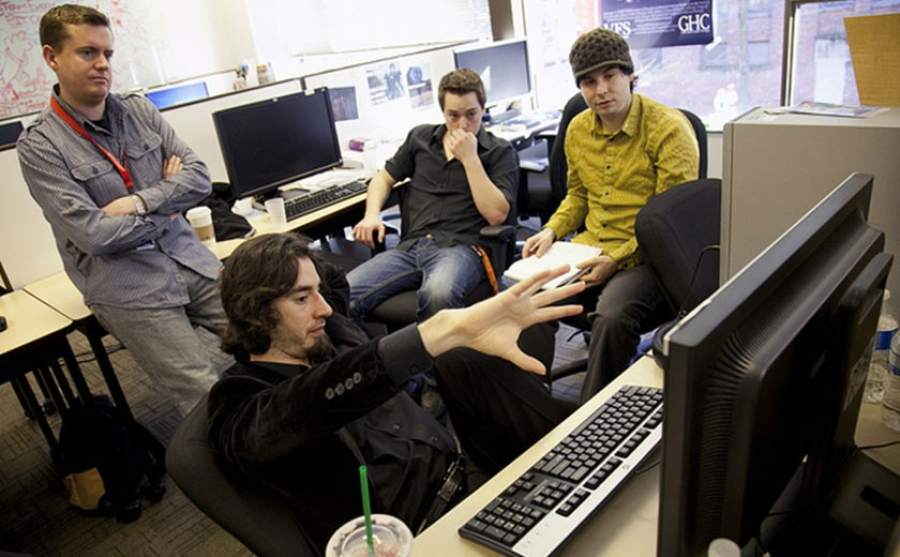
- Training Video Game
In video game architecture, the programmer is the one who provides the engine for the project and gives it the technical means to develop and run at its best, regardless of the platform or console used. Their tasks are therefore essential to the success and smooth running of any video game. Here is a guide to better understand these tasks, as well as the training and career opportunities related to the profession.
Duties and roles of a video game programmer
The video game industry employs a wide variety of video game programmers and developers with multiple duties. But they all write the essential lines of code that will make the final video game coherent.
In short, the programmer’s job is to design the game’s IT architecture and optimize its performance.
Depending on the company and the project, programmers have different functions and responsibilities, including creating the “building blocks” that form the basis of gameplay, developing the physics of a given universe, 3D development and rendering, and creating specific tools needed for game development. As you can see, video game programmers wear many hats, but their role is crucial in many areas of video game creation.
This is why it is important to develop a varied set of skills, to be able to combine professional rigor with great flexibility, and to remain attentive to the needs of all the teams involved in the project.
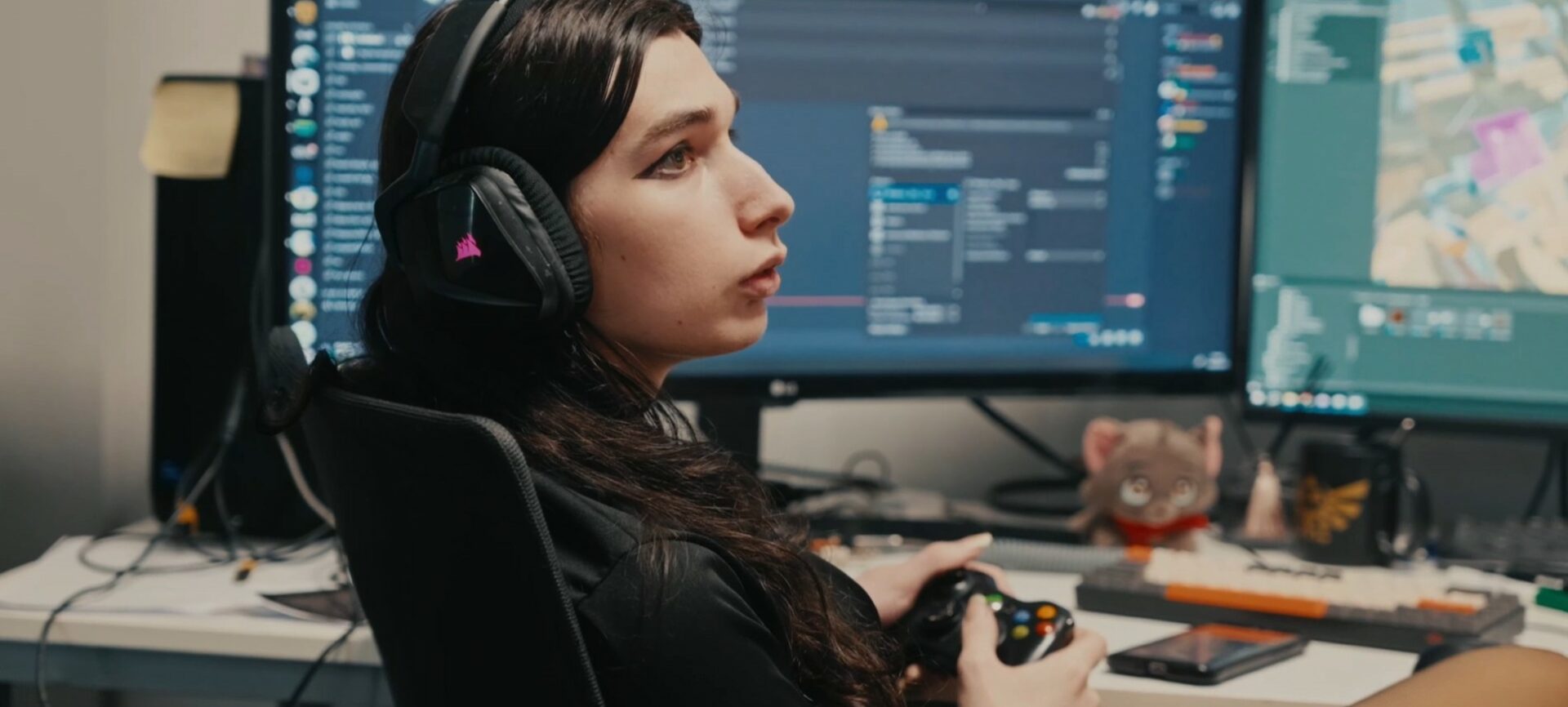
Skills and qualities required to be a video game programmer
Programmers are constantly exposed to technological developments. They are therefore required to continuously update their knowledge and adapt to new tools, media, and programming languages.
Programmers are expected to be available at all times, especially during peak production periods. Because this position can be stressful and meticulousness is the norm, rigor and precision are essential qualities for programmers. As well as, of course, a perfect command of the computer technologies necessary for creating a video game, with a creative streak and a good dose of inventiveness.
Tools and software used by video game programmers
In principle, video game programming involves three phases: analysis (the game’s IT requirements), detailed design (writing the program), and testing and correction (also known as acceptance testing).
During the development and production of the video game, programmers bring together the parts of the game produced by other team members to create a coherent “package,” a whole that will give the video game its unity.
To do this, programmers use tools such as the Unity and Unreal Engine game engines, or the simpler GDevelop, to cite another example. At the same time, they code in C++ or C# with source code management tools such as GitHub and Fork. Having skills in Blender, as well as audio editing tools such as Audacity, will also allow you to more easily understand and manipulate the assets provided by the rest of the team.
Finally, and mainly in the case of senior programmers, being able to use project management software such as Trello or Notion is essential for effective and accurate management, which will greatly help your teams to work calmly.
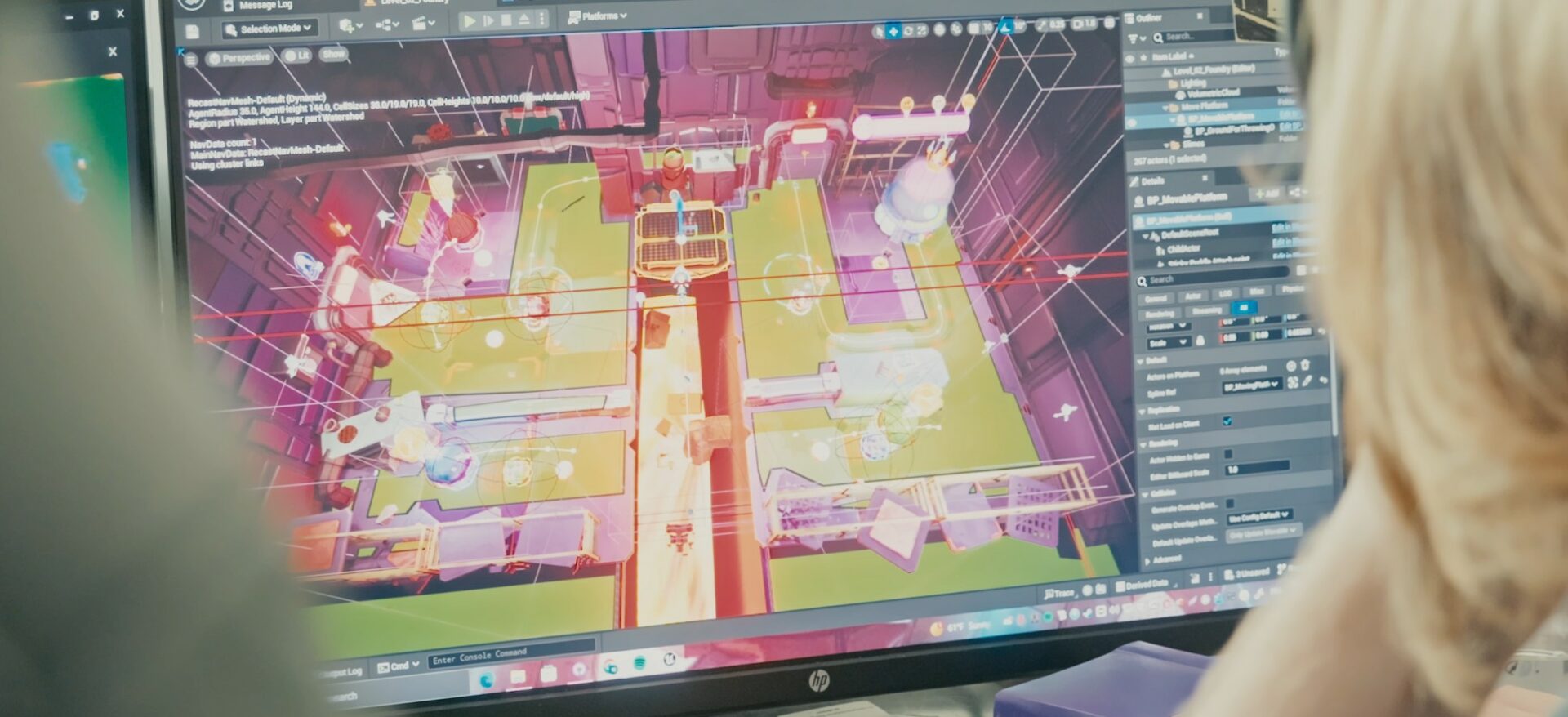
Which high school diploma should you choose?
To become a programmer, the most direct option is to choose a high school diploma with a more technical profile. A high school diploma with a specialization in mathematics, for example, or in Digital and Computer Science (NSI), are very good gateways to higher education institutions specializing in video game development. However, there is no set path, and you can choose a different route and then specialize in preparatory classes.
Training and qualifications to become a video game programmer
To excel as a video game programmer and break into this thriving but highly competitive industry, comprehensive, professional training is essential. It should give you a comprehensive overview of all aspects of programming and strengthen both your technical and collaborative skills. You will be working closely with other developers, game designers, and artists who are contributing to the project. A comprehensive curriculum is therefore key to mastering the tools, understanding production methods, and maximizing your chances of being hired.
This training, which combines theory and practice, culminates in the creation of a complete video game. This project is a real-world test that forces you to find your own working methods and prove your expertise. It is a valuable experience that serves as a springboard to employment and is your best calling card for attracting recruiters.
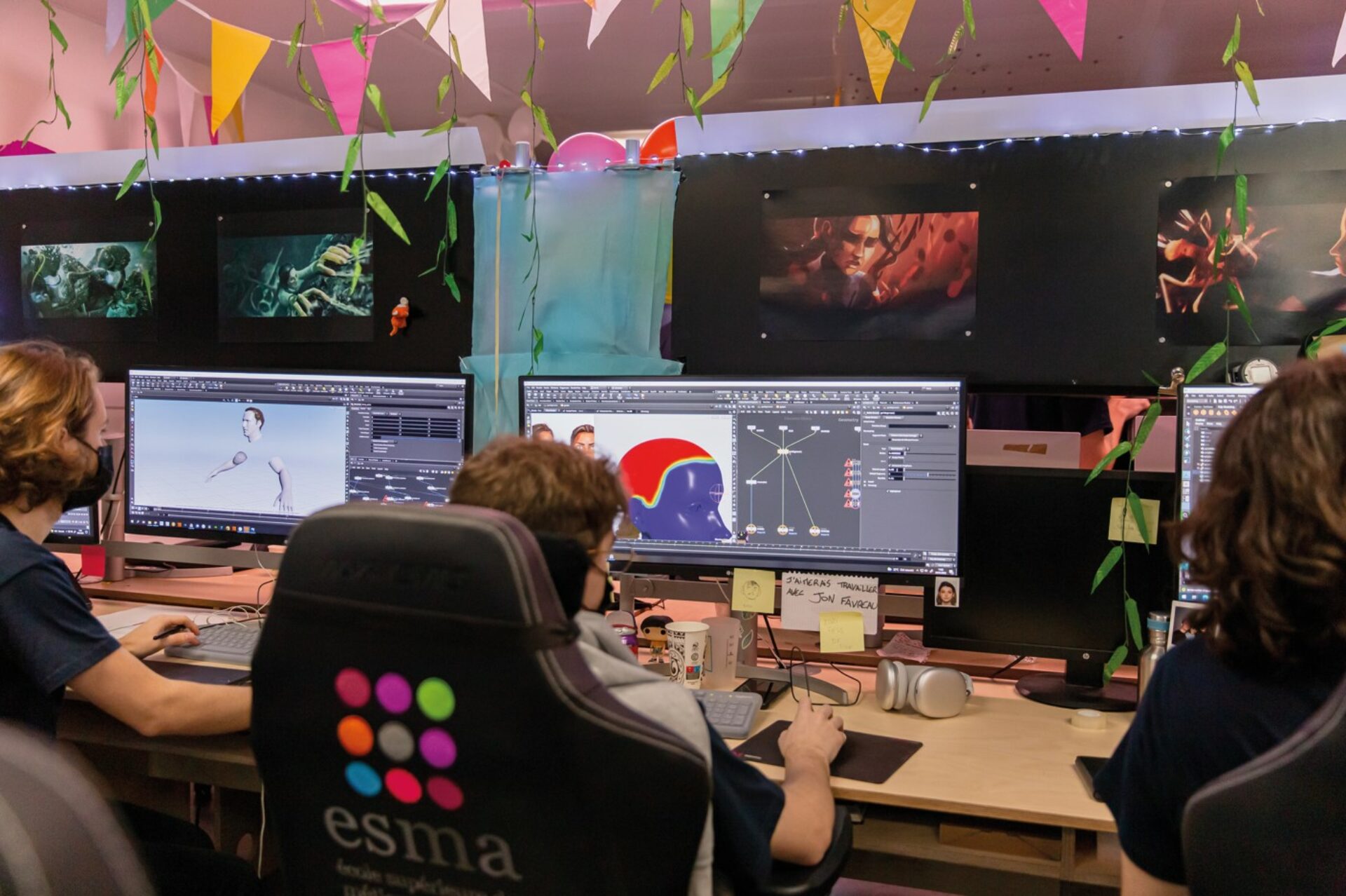
What is the salary of a video game programmer?
The average annual salary for a video game programmer is approximately $102,600. This figure represents the median base pay, though high-level engineers at major studios often receive additional compensation through performance bonuses and profit-sharing, which can elevate the total package closer to $130,000.
Average starting salary
A beginner programmer entering the field typically commands a gross annual salary between $72,000 and $88,000. While the initial pay depends on the studio’s scale, those starting at larger organizations or working on complex systems like network architecture or physics often begin at the higher end of this range.
Average salary for experienced programmers
With significant experience, the compensation for programmers rises sharply. Professionals at this level are often responsible for critical game systems or leading technical teams on large-scale projects. In these roles, salaries typically range from $120,000 to $165,000, with elite specialists in high demand technical areas potentially exceeding these figures.
Career opportunities
Depending on the type of studio or company, a junior programmer can quickly climb the ladder and, after a few years of experience, become a lead programmer on the projects they are involved in. They can also specialize in a particular technology or language, and may consider becoming a project manager or technical director.
Sectors and companies that are hiring
Due to their technical skills, programmers are highly sought after in the video game industry. They are actually among the most sought-after profiles and can be recruited by both large studios and independent producers, as long as their skills meet the industry’s requirements. The ability to work abroad or remotely is, of course, an asset in an increasingly globalized industry.
Which school should you choose to become a video game programmer?
With its curriculum dedicated to video game creation as a whole, ESMA is an ideal choice for anyone who wants to become a video game programmer. ESMA’s Video Game training program, which combines theoretical courses and learning tools with the creation of a complete video game project, allows aspiring programmers to explore all aspects of video game production, while developing their interpersonal skills and building the foundations of what will become their future professional network.

